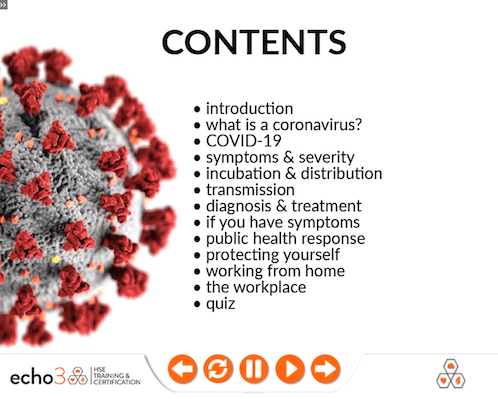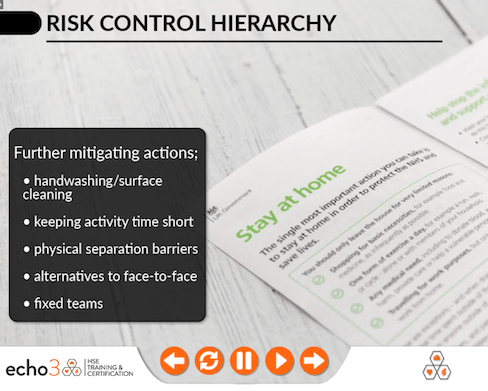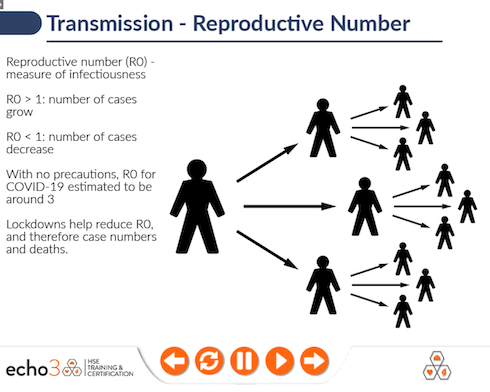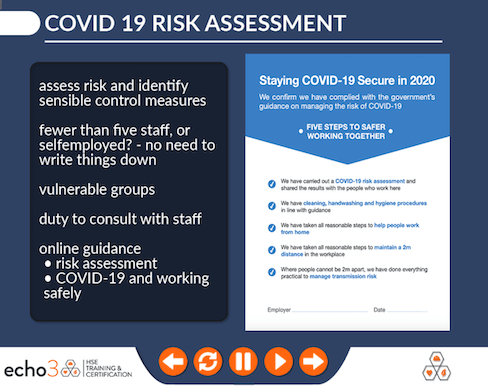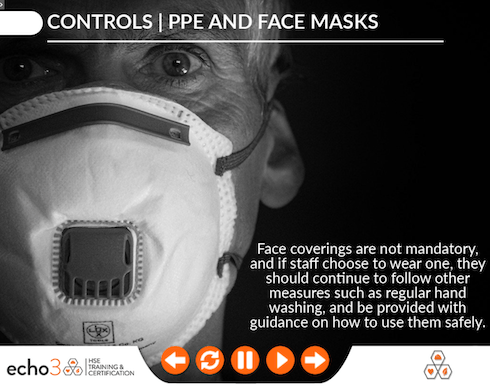Your basket is currently empty!

Coronavirus Infection Control
This short Coronavirus course provides an understanding of what coronavirus is and how to reduce the risk of infection spreading in your workplace. Take the course yourself or purchase for colleagues so they know how to help reduce infection rates. DURATION | 25 minutes
- For Me
- For Teams
Online Coronavirus Infection Control Course | Understand how to help limit infection from COVID-19 at work.
While this course provides general information about coronavirus COVID-19 and infection control, it should not be regarded as medical advice.
If you have any concerns about coronavirus prevention, symptoms, or treatment, please follow current World Health Organization or NHS guidance.
In the event of a medical emergency you should always call 112 (or 999 in the UK).
COVID-19 is a new disease which we are still learning about, and so the information in this course is subject to change. Because of its global spread, public health information and guidance may differ from country to country.
We all have a role in helping to reduce infections. As an employer if your staff cannot work from home this 40 minute course serves as a way to help staff understand how to reduce the risk of coronavirus infections in your workplace.
At the end of the Coronavirus Infection Control course there is a 15-question, multiple-choice assessment. Participants must achieve a minimum pass mark to evidence understanding and receive their completion certificate.
Current NHS guidance can be found here.
Up to date infection tacker.
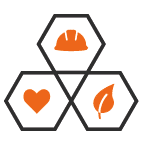

Coronavirus Course Objective
There are many helpful sources of information to help reduce the chance of infection. This online course is designed as a solution for employers to ensure your staff have been given and understand how to reduce the chance of infection in your workplace.
Learning Outcomes
- The origin of COVID-19
- Common symptoms associated with COVID-19
- The public health response, including NHS guidance, in the UK
- Infection control and personal protective measures
Course Content
- introduction what is a coronavirus?
- novel coronavirus COVID-19
- symptoms
- incubation period
- methods of transmission
- reproductive number
- diagnosis
- treatment
- if you have symptoms
- public health response
- exiting lockdowns
- protecting yourself
- working from home
- workplace hygiene
- workplace policy & planning
Certificate
At the end of the Coronavirus Infection Control course there is a 10 question, multiple-choice quiz. If learners demonstrate their understanding of course content by achieving a minimum score of 70%, we’ll email them their completion certificate. If learners score less than 70%, they can revisit any part of the course and retake the quiz until they are successful.
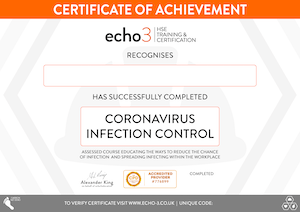
Ideal for
All employees who are unable to work completely from home
What is a coronavirus?
There are different types of coronavirus, affecting both people and animals. When humans become infected they can experience a range of illnesses, from mild colds to more serious diseases such as Severe Acute Respiratory Disorder (SARS) or Middle East Respiratory Syndrome (MERS).
Some coronaviruses affect only animals initially, before being transmitted to – and spreading among – people. Research has shown that the SARS coronavirus was transferred to humans from civet cats in China in 2002, while MERS originated in camels before spreading to people in Saudi Arabia in 2012.
Novel Coronavirus
When a new strain of coronavirus infects humans for the first time, it is referred to as a novel coronavirus.
In December 2019, an outbreak of novel coronavirus similar to SARS was reported in Wuhan, China. This new strain of novel coronavirus has been named COVID-19.
The precise animal source of COVID-19 has not yet been identified but is suspected to have occurred at a live animal market. There is no evidence to suggest that domestic pets like dogs and cats have been infected by or are spreading COVID-19.
Coronavirus Public Health Response
Despite attempts to contain COVID-19, the virus has now spread to most countries in the world and infected millions of people.
As we all know, this has led to lockdowns – very severe restrictions on physical movement – as countries try to reduce transmission of the virus in the community. Limiting contact in this way is intended to prevent so many people becoming seriously ill at the same time that available medical resources are overwhelmed.
Lockdowns have generally involved populations staying at home and reducing physical contact with others as much as possible, particularly for those who are especially vulnerable. This has a had a monumental effect on normal life, impacting the economy, work, education, travel, non-urgent medical treatment, culture and sport right across the world.
Current NHS guidance can be found here
Some steps to consider in work to help reduce infections can be found here
Coronavirus Infection Control Includes
- Final assessment to evidence learning
- Emailed certificate
- Completion reports
- 12 months access
- Zero Carbon product
WORKING FROM HOME | HEALTH & SAFETY FOR MANAGERS | CUSTOMER SERVICE SKILLS
E: [email protected] | T: 0131 661 8253






